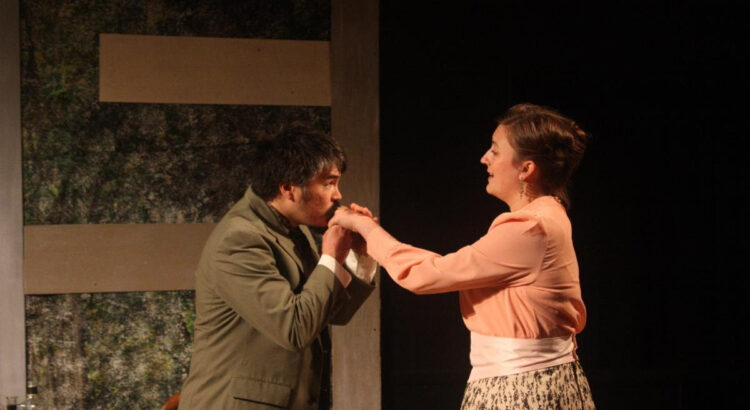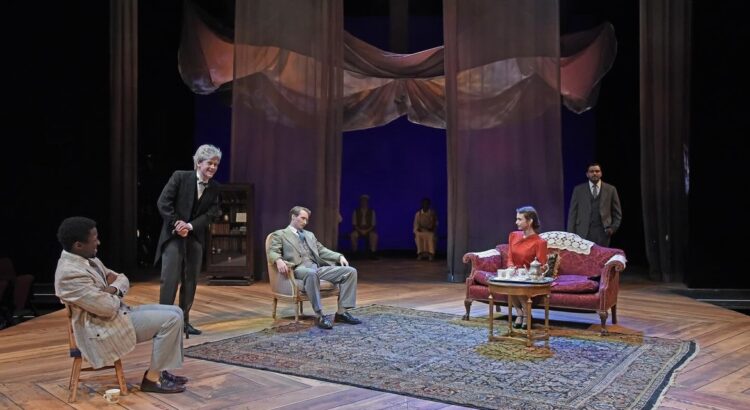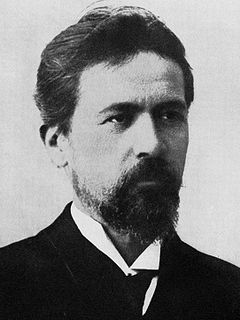December 13 | 7:30 pm | Ann Arbor Civic Theater
Chekhov’s stories task audiences to examine the challenges of the human condition. Uncle Vanya’s troubles manifest in a more ironically despairing way. The production, which ran for a second weekend at Ann Arbor Civic Theater last Friday, centers on the near-penniless Ivan Petrovich Voynitsky (better known as “Vanya”), who claims to have the most troubles—at least he thinks so. His extended family joins him at his late sister’s estate, only to share his dissatisfaction with life. How does a play doused in apathy preserve itself over a hundred years? And who is paying the mortgage?
Vanya’s (Trevor Maher) loathing is interrupted when his brother-in-law, the ex-professor Alexander Serebrakov (Bryan Shane), arrives with his beautiful new wife, Helena (the stoic Nicole Arruda). She becomes the object of affection for both Vanya and the household doctor, Michael Astroff (a spritely Joseph McDonald). The two men are infatuated with Helena, while she harbors only ambiguous feelings for Astroff. Yet she grapples with an understated resentment toward Alexander (Mr. Shane, who led a stately and demanding performance).
While Dr. Astroff and Helena shared coy exchanges, the spark of love did not burn bright for the young Sonia (Mackenzie Finley), Vanya’s niece, who had a seemingly teenage infatuation with Dr. Astroff. Though he flirted with the idea of her affection, the only make-out sesh occurred between him and Helena (unknowing to Alexander, of course). All this romantic ruckus left “Waffles” (Larry Rusinsky) and the family nurse Marina (a charming Wendy Wright) as the standing symbols of support and consistency.

As Ms. Wendy Katz Hiller’s director’s note acknowledged, productions of Uncle Vanya are appearing all over the country: The Broadway Revival starring Steve Carrell ran last spring, and Andrew Scott’s one-man Vanya from the West End is culminating in a Broadway run next spring. In addition to those big productions, I’m confident you could find at least one Uncle Vanya in every major city across the U.S. Vanya’s existentialism and exhaustion are wrapped in a search for purpose, creating a character who can be frustratingly familiar. The beauty of Chekhov’s text lies in its sustained relevance across decades, revealing universal feelings that make the production feel timely at many points in our history.
The usual two-and-a-half-hour runtime was whittled down to a crisp 95 minutes by Ms. Hiller—a choice greeted with narrative clarity for modern audiences. We see a succinct plot line, only at the expense of some poetic dialogue (which works for me!). Though, I found myself pining for a dramaturgical deep dive into performance. Historical context enriches a story for me, especially as this work shares many stifling thematic elements with its Chekhovian siblings, The Cherry Orchard and The Seagull (as far as depressed people living under deteriorating wealth go).
Vanya’s inner turmoil brings a bittersweet resolution where life continues unchanged despite everyone’s despair. I begged to feel hope from this story, just as I often do in our modern world, but the only condolence I received was, “We shall rest!” from the optimistic Sonia. Though these characters feel bleak, the curtain call reminded me that hope does exist in the resonance of community-driven theater—where timeless art can be found in every nook and cranny of Ann Arbor.
Photos thanks to Ann Arbor Civic Theater.









